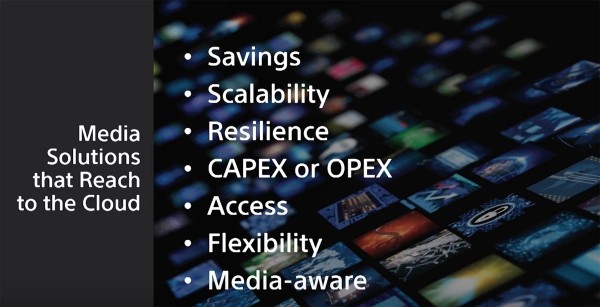
Here’s an interesting video for those of you interested in the professional space and what Sony is doing with their latest efforts from NAB 2017.
Learn about Sony’s media cloud offerings and how they can enhance your workflow

Here’s an interesting video for those of you interested in the professional space and what Sony is doing with their latest efforts from NAB 2017.
Learn about Sony’s media cloud offerings and how they can enhance your workflow
 On the heels of unveiling the latest Digital Paper, a solution for professional who want to rid themselves of paper, Sony is also announcing a new joint venture. Via Yahoo! Finance:
On the heels of unveiling the latest Digital Paper, a solution for professional who want to rid themselves of paper, Sony is also announcing a new joint venture. Via Yahoo! Finance:
Sony Semiconductor Solutions Corporation, a wholly-owned subsidiary of Japanese conglomerate Sony Corporation SNE recently announced a joint venture (“JV”) with leading papermaking company E Ink Holdings (E Ink). Officially registered in Taiwan, this JV will focus on designing, manufacturing, selling, distributing and licensing products that use electronic paper displays.
Operations are expected to commence post regulatory approvals. The JV will integrate E Ink’s development and manufacturing technology with Sony’s product development and marketing expertise to create a new ePaper market. This will feature innovative electronic paper display products and systems.

First seen all the way back in 2014, the Sony Digital Paper is a 13.3-inch E ink reader that’s targeted at professionals like lawyers, university researchers, and whoever else that finds their work life buried in paper. The vision for Sony since the DPT-S1 was unveiled almost four years ago has been to replace paper with a more elegant (and for you and I, Sci-Fi) solution.
The DPT-RP1 is now a culmination of that idea, taking what was a fully working product a few years ago and improving upon it. So what’s changed with the Sony Digital Paper compared to its predecessor? A lot, it seems.
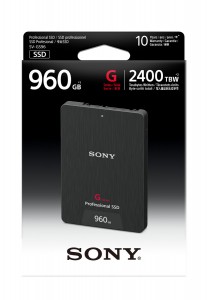
As 4K production picks up for professionals from something that’s done on specific jobs to every piece of content being shot in the resolution, so does the wear and tear that goes on the equipment, namely capture cards. While there already exists 4K SSD cards like the Kingston HyperX Savage, they’re not necessarily designed for the long haul like the G-series from Sony which they claim will last 10 years under heavy use.
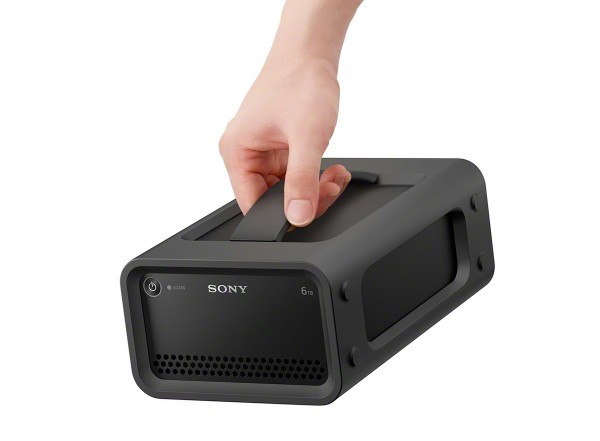 A fairly unknown party of Sony’s business to many is their professional lineup of equipment that’s mainly targeted at those in the broadcast community. From Bundesliga games to the biggest films to come out of Hollywood, there is a good chance that some Sony equipment was used. To that end, Sony is bringing to market a portable and shock resistant Thunderbolt 2 RAID drive which comes in a 4TB and 6TB configuration that’s meant to accommodate those shooting in 4K.
A fairly unknown party of Sony’s business to many is their professional lineup of equipment that’s mainly targeted at those in the broadcast community. From Bundesliga games to the biggest films to come out of Hollywood, there is a good chance that some Sony equipment was used. To that end, Sony is bringing to market a portable and shock resistant Thunderbolt 2 RAID drive which comes in a 4TB and 6TB configuration that’s meant to accommodate those shooting in 4K.
Sony’s expanding line of professional storage technologies now includes two distinctive, rugged and portable RAID (dual 3.5 inch HDD) products for ultra-fast data transfer on location in 6TB and 4TB capacities. Each new model has the transfer speeds and high performance needed for 4K production and deliver effective high-capacity content workflow options from the field to the studio.
Sony continues with:
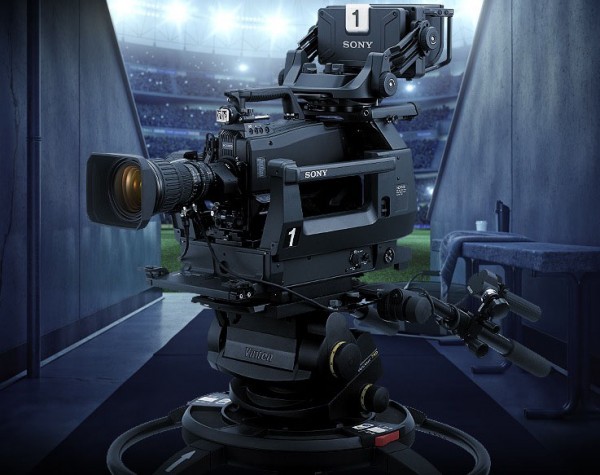
One of the most delightful things about attending CES is that Sony has the ability to show off sporting events like the World Cup and Olympics in glorious, uncompressed 4K. 4K over the airwaves is already next to non-existent and when you can get it, be it from satellite or streaming services, chances are that it’s gone through multiple layers of compression before it ever hits your screen. But when you’re at CES, Sony can just bring you that 4K content in the most pure way possible and boy does it dazzle. Not so coincidentally, all that footage is captured on various professional Sony cameras and other related production equipment and the 2016 Olympic games in Rio won’t be any different.
NBC Olympics crews will use more than 100 Sony cameras to capture footage at event venues and record athlete arrivals, interviews, press conferences and other assignments that require studio and portable recording and capture. NBC Olympics will also use Sony’s HDC-4300 4K high frame rate camera system for HD replays and the PWS-4500 XAVC server to capture and store high speed HD content from the HDC-4300.
Hopefully one day soon we’ll have access to all the beautiful footage that’s captured via these Sony cameras because a sporting event in beautiful 4K and a proper sound system is like nothing you’ve ever witnessed before. Unless it’s golf – then it’s just people wacking away at a ball every 30 minutes. After the jump, the full breakdown of Sony gear used in this year’s Olympic games.
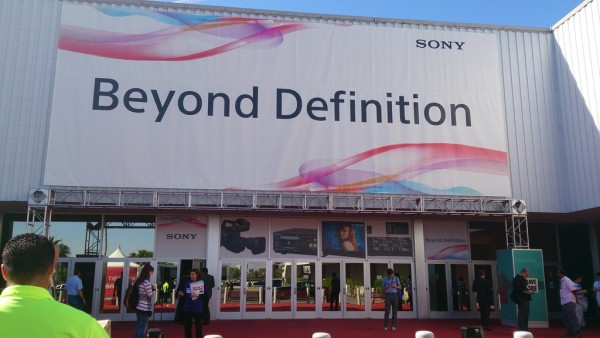
Sony has officially revealed that, come April 17 at 2:00pm, the company will take the stage in Las Vegas to present their NAB Show 2016 keynote. NAB is generally geared towards professionals and in turn, Sony traditionally makes announcements and reveals based around their cinema-grade cameras and equipments. However, Sony has curiously also invited a few people from the photography world, lending to rumors that they also plan on announcing new cameras as well.
With the keynote happening on Sunday, we luckily won’t have to wait long to find out. More after the jump.
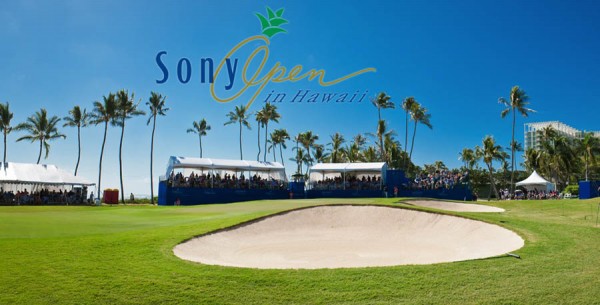
You might not be able to watch your favorite Bundesliga or NBA team yet in 4K but it looks like we’re inching closer to that reality. That’s because the 2016 Sony Open in Hawaii PGA TOUR event will be shot and broadcasted in HD on Golf Channel using Sony professional cameras. Alongside the typical HD broadcast, the tournament will be a
testing ground for 4K live production and broadcasting. In addition to multiple Sony HDC high-definition cameras positioned across the course, Sony’s HDC-4300 will capture action on the 17th hole in 4K resolution, delivering four times the clarity and resolution of full HD.
So no 4K broadcast yet but we’re slowly getting there, thanks to Golf. That’s because unlike most other sports, Golf is a fairly predicable event with slow movements and easy direction to follow. This allows for Sony to put their equipment and production technics to the test where other sports like say Soccer might be too fast moving and unpredictable. Fast movements alone can be a nightmare for a camera if you need to constantly pan back and forth.
The HDC-4300’s will be flanked by F55 S35mm cameras that will provide on course segments that will be used for the 4K HDR production as well as being converted to HD for the main broadcast.
More after the jump.
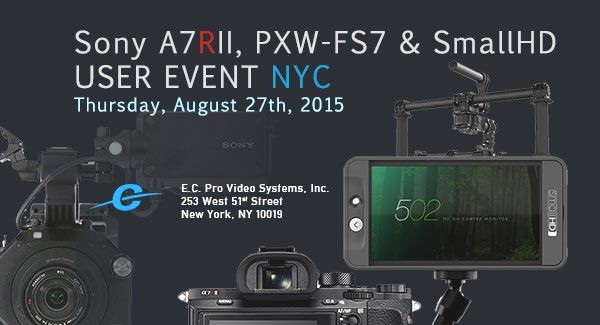
Here is a fun one for you. If you’re the proud owner of the Sony A7r II or the Sony PXW-FS7 then listen up. Sony Professional and SmallHD (known for their on-camera monitors) are throwing together an event in NYC. Besides fun activities and chatting with like-minded owners, you’ll get the opportunity to give feedback to SmallHD on their lineup of products.
More details on the event which takes place on August 27th.
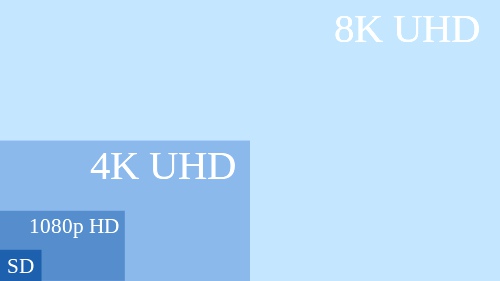
Sure consumers may just be on the cusp of transitioning to 4K, but that doesn’t mean manufacturers like Sony aren’t already thinking beyond that. We’ve already seen some companies show off 8K sets at CES but they provide little value as there’s barely any 4K content, let alone 8K. However, the format has some practical uses on the professional end.
With twice the resolution of 4K, recordings can be easily cropped, perfect for sports where specific plays are zoomed in on and analyzed. We’ve already seen Sony incorporate 4K cameras during the World Cup which were broadcasted in 1080p. With that extra resolution at hand, Sony and broadcasters were instead able to zoom in and highlight specific parts of the field without any loss of quality.
As we start to move towards 4K, it’s only natural for professional gear to be able to do the same thing so the 4K content we consume has the same flexibility. After the jump, supposed Sony 8K FZ mount camera specs.
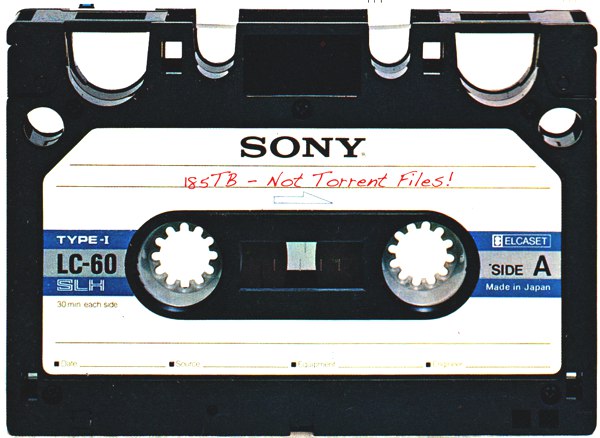
Looking to archive your entire life? Sony’s got you covered as the electronic giant has revealed a nano-sized tape technology that’s capable of storing more than any traditional hard drive or optical media could. According to Engadget, “by optimizing how it sputters argon ions onto film to create magnetic material, the company has produced “nano-grained” tape that’s 74 times denser than what you see today.” This tech breakthrough has resulted in a 185TB cartridge (not pictured above).
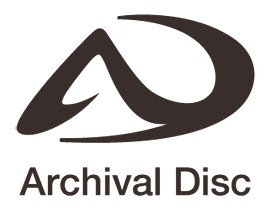
Sony, alongside Panasonic, one of the early backers of Blu-ray, have announced a new optical disc format dubbed Archival Disc. While the new format is designed as a successor to Blu-ray technology, Sony and Panasonic currently have no plans on bringing the new disc to consumers. Instead, the two companies are targeting companies who want a better solution for long term storage.
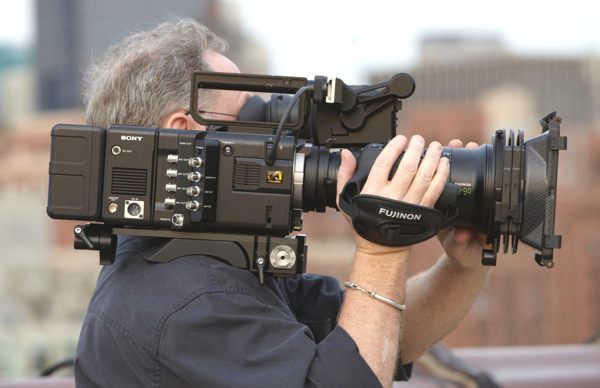
The Sochi 2014 Winter Olympics is set to kick off tonight, exclusively on NBC where the network giant will utilize Sony’s range of HD production technology for its coverage. This is the 8th consecutive Olympics that Sony has provided support for NBC but the inclusion of 4K will make it a first. To help capture every moment, NBC will utilize over 70 Sony HD and 4K professional camcorders. Specifically, NBC will use the XDCAM, HDC, HSC and HXC-100 models for their 1080p HD coverage while the Sony F55 will provide native 4K footage. Just last week, the NFL tapped Sony for their HD expertise where Sony professional cameras were used to capture HD and 4K coverage of Super Bowl XLVIII. But that’s not the only Sony equipment that’s making its way to Russia.
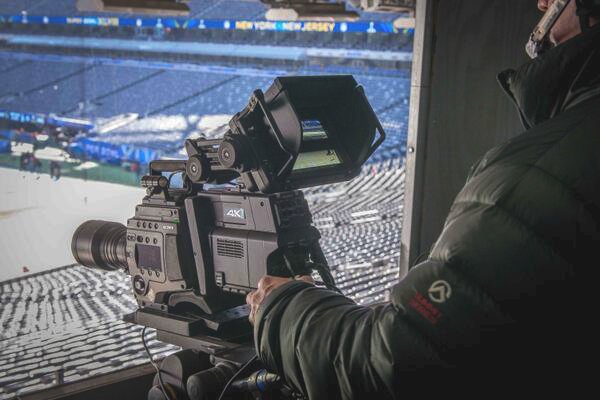
Making it a first for the NFL, Fox will be using six Sony 4K cameras to capture the Super Bowl later today which will see Peyton Manning crush the Seahawks (yes I had to get that in there). Specifically, Fox will be utilizing the Sony F55s and F65 by placing two on the sidelines, two on the goal lines, and two on the end lines to enhance the networks “Super Zoom” feature. Traditionally, Fox has relied on their cameramen to zoom in on a specific action or event by using the cameras optical lens. With the extra resolution that 4K has to offer, Fox will instead be able to crop what they need, insuring that no play or detail will be missed with just a wide shot. Jerry Steinberg, Fox’s senior vice president of operations:
It allows us to do an electronic zoom and maintain resolution
Steinberg went on to say:
It’s all about the clarity of the replay and giving viewers the best possible look at a play, and that’s what we can do with these cameras. Since we’re starting with such a high-resolution image, we can zoom in multiple times on a shot and still get a completely clear picture with zero pixel degradation. You see everything in extreme detail, in fact with an extra amount of detail you wouldn’t see in a traditional replay.
Does this mean that those with a 4K set can catch the live event in 4K?
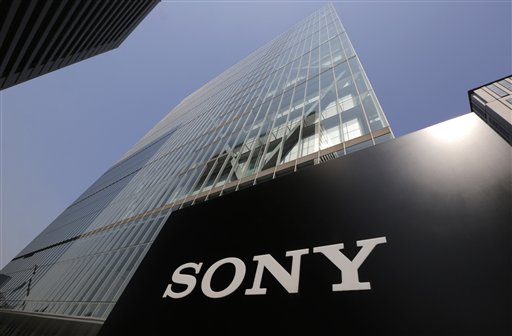
Sony is reported to be on the verge of a deal with US-based human genome equipment maker Illumina Inc. The joint operation will conduct genome information analysis aimed at drug companies in Japan. The move marks Sony’s latest initiative to find new growth and achieve fiscal targets as the company looks to diversify its portfolio beyond the highly competitive electronics market.
You must be logged in to post a comment.